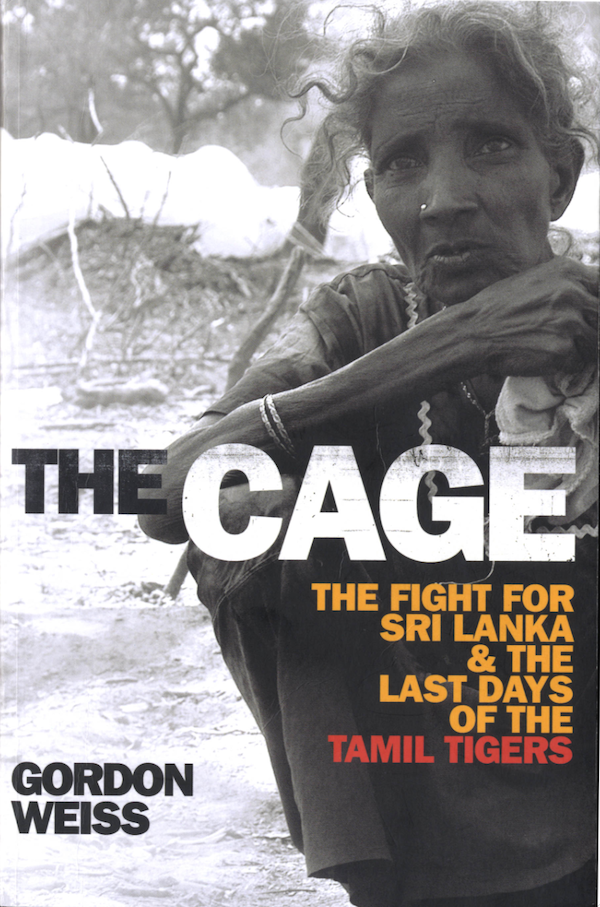
By Associated Press,
The U.N.’s independent investigator on extrajudicial killings says the five-minute video obtained by Britain’s Channel 4 corroborates an earlier, shorter video showing blindfolded, naked men being shot dead at close range.
“What is reflected in the extended video are crimes of the highest order — definitive war crimes,” the U.N. investigator, South African law professor Christof Heyns, said in a report released Monday to the global body’s Human Rights Council.
Heyns said he reviewed the new footage showing the apparent execution of unarmed men and women with technical and forensic experts. “The overall conclusion reached by the experts is that the video is authentic and the events reflected in the video footage occurred as depicted,” he told the council
Sri Lanka’s government has maintained that the video is not real.
“We don’t accept it. We have proven beyond any doubt that this is not authentic,” said Lakshman Hulugalla, director general of the government’s Media Center for National Security.
He added, “If they say this is authentic, then they should get an authentication certificate from a reputed institution to prove that it’s not fake. So far, no has submitted such a certificate on this.”
Channel 4 said in a statement to The Associated Press that the footage will be aired as part of a one-hour program on June 14.
“As with all the material in this new long-form film, the extended video has been subjected to rigorous journalistic scrutiny and checks. Following this meticulous process, we are satisfied that all the material presented is genuine,” the station said.
Channel 4 declined to say how it obtained the video, citing the need to protect its source.
The new footage is expected to re-ignite debate in the Geneva-based body about a September 2009 resolution that effectively endorsed the Sri Lankan military’s crushing of the Tamil Tiger rebels after decades of civil war, despite claims of war crimes by human rights groups.
The U.N.’s High Commissioner for Human Rights, Navi Pillay, told the council Monday at the opening of its three-week meeting that it should “reflect on the new information” and reconsider the resolution.
Her comments were echoed by diplomats from Western countries, including the United States.
“This Council must consider the serious abuses that have been documented and brought to our attention by the panel,” said U.S. Ambassador Eileen Chamberlain Donahoe. “Sri Lanka must quickly and credibly address allegations of violations of international human rights and humanitarian law during the conflict, no matter which side committed them,” she added.
But African and Islamic members of the 47-nation Human Rights Council moved to quell any attempt to reopen the debate on Sri Lanka’s conduct at the end of the war.
“The international community must support national efforts to win the peace in Sri Lanka,” said Pakistan’s ambassador, Zamir Akram, speaking on behalf of the Organization of the Islamic Conference, which has a powerful presence in the council.
Akram said a recent report by the office of U.N. Secretary-General Ban Ki-moon was “primarily based on second-hand information that was never verified.”
The U.N. report claimed Sri Lankan government forces deliberately targeted civilians and hospitals, and blocked food and medicine for hundreds of thousands of civilians trapped in the war zone. It also accuses the Tamil Tiger rebels of recruiting child soldiers, using civilians as human shields and killing those trying to flee from their grip.
Ban has said he would need a mandate from either the Sri Lankan government or the U.N.’s Human Rights Council, Security Council or General Assembly in order to initiate an international inquiry into allegations of war crimes by both sides.
The U.N. estimates that between 80,000 and 100,000 people may have been killed in the war, including at least 7,000 ethnic Tamil civilians killed in the last five months of the conflict.
Kshenuka Senewiratne, Sri Lanka’s ambassador to the U.N. in Geneva, warned council members against approving an international probe of the alleged abuses, saying the procedure used to do so could set a precedent.
“It may wrongly be us today and one of you tomorrow,” she said.
Heyns said he reviewed the new footage showing the apparent execution of unarmed men and women with technical and forensic experts. “The overall conclusion reached by the experts is that the video is authentic and the events reflected in the video footage occurred as depicted,” he told the council
Sri Lanka’s government has maintained that the video is not real.
“We don’t accept it. We have proven beyond any doubt that this is not authentic,” said Lakshman Hulugalla, director general of the government’s Media Center for National Security.
He added, “If they say this is authentic, then they should get an authentication certificate from a reputed institution to prove that it’s not fake. So far, no has submitted such a certificate on this.”
Channel 4 said in a statement to The Associated Press that the footage will be aired as part of a one-hour program on June 14.
“As with all the material in this new long-form film, the extended video has been subjected to rigorous journalistic scrutiny and checks. Following this meticulous process, we are satisfied that all the material presented is genuine,” the station said.
Channel 4 declined to say how it obtained the video, citing the need to protect its source.
The new footage is expected to re-ignite debate in the Geneva-based body about a September 2009 resolution that effectively endorsed the Sri Lankan military’s crushing of the Tamil Tiger rebels after decades of civil war, despite claims of war crimes by human rights groups.
The U.N.’s High Commissioner for Human Rights, Navi Pillay, told the council Monday at the opening of its three-week meeting that it should “reflect on the new information” and reconsider the resolution.
Her comments were echoed by diplomats from Western countries, including the United States.
“This Council must consider the serious abuses that have been documented and brought to our attention by the panel,” said U.S. Ambassador Eileen Chamberlain Donahoe. “Sri Lanka must quickly and credibly address allegations of violations of international human rights and humanitarian law during the conflict, no matter which side committed them,” she added.
But African and Islamic members of the 47-nation Human Rights Council moved to quell any attempt to reopen the debate on Sri Lanka’s conduct at the end of the war.
“The international community must support national efforts to win the peace in Sri Lanka,” said Pakistan’s ambassador, Zamir Akram, speaking on behalf of the Organization of the Islamic Conference, which has a powerful presence in the council.
Akram said a recent report by the office of U.N. Secretary-General Ban Ki-moon was “primarily based on second-hand information that was never verified.”
The U.N. report claimed Sri Lankan government forces deliberately targeted civilians and hospitals, and blocked food and medicine for hundreds of thousands of civilians trapped in the war zone. It also accuses the Tamil Tiger rebels of recruiting child soldiers, using civilians as human shields and killing those trying to flee from their grip.
Ban has said he would need a mandate from either the Sri Lankan government or the U.N.’s Human Rights Council, Security Council or General Assembly in order to initiate an international inquiry into allegations of war crimes by both sides.
The U.N. estimates that between 80,000 and 100,000 people may have been killed in the war, including at least 7,000 ethnic Tamil civilians killed in the last five months of the conflict.
Kshenuka Senewiratne, Sri Lanka’s ambassador to the U.N. in Geneva, warned council members against approving an international probe of the alleged abuses, saying the procedure used to do so could set a precedent.
“It may wrongly be us today and one of you tomorrow,” she said.





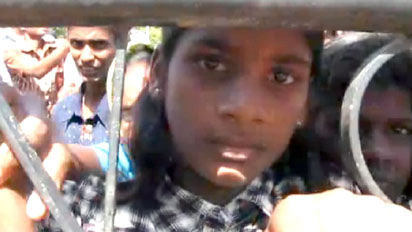





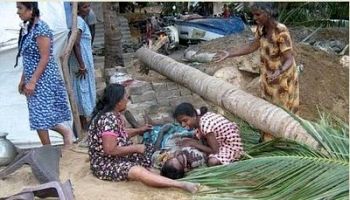

 Sutirtho Patranobis, Hindustan Times
Sutirtho Patranobis, Hindustan Times
 30 May, 2011
30 May, 2011


 What is reflected in the extended video are crimes of the highest order - definitive war crimes
What is reflected in the extended video are crimes of the highest order - definitive war crimes




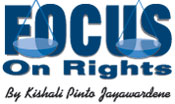






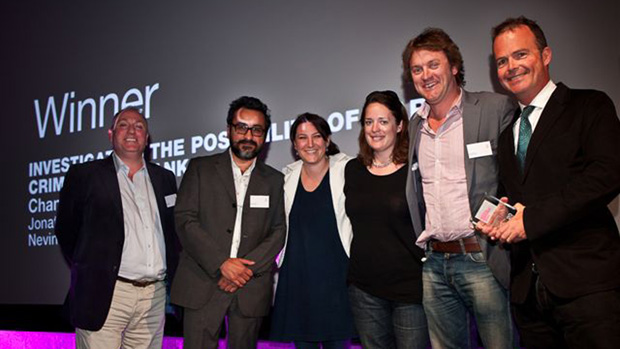
 *groundviews journalism For citizen
*groundviews journalism For citizen